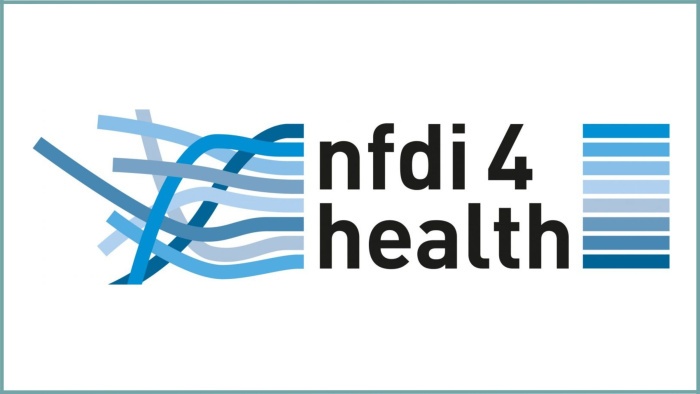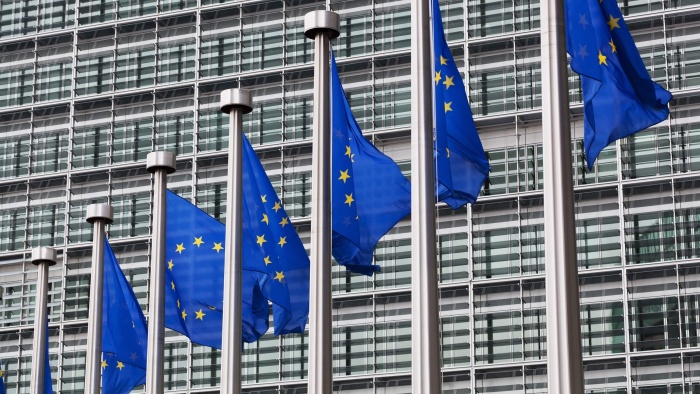Biomaterial Banks: Between Overregulation and Uncontrolled Growth
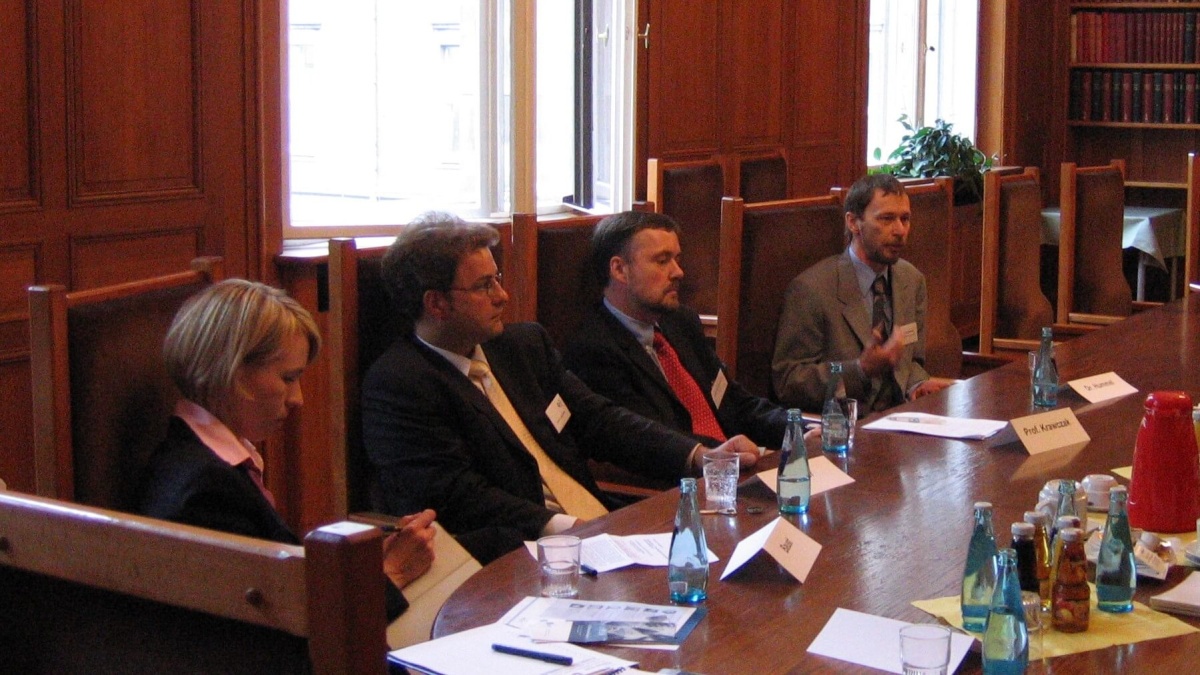
Dr. Michael Hummel, Prof. Dr. Michael Krawczak, and Sebastian C. Semler (from right to left) explained the BMB project in a press conference. © TMF
The TMF presented the results of its extensive Biomaterial Banks project, initiated at the end of 2004 on April 27, 2006, during a symposium held in Berlin. PD Dr. Michael Hummel (Competence Network Malignant Lymphomas), the overall project leader, emphasized that, from a scientific perspective, flexibility for proband-based research on biomaterials is necessary. At the same time, it must be ensured that the establishment and operation of biomaterial banks comply with legal and ethical requirements.
The establishment and operation of biomaterial banks (BMB) in Germany have not been clearly regulated so far. However, these material banks, which make tissue samples available for medical-scientific analyses in the long term, offer great potential for addressing urgent questions in medical research, especially when the samples are combined with data on the course of the respective patients' diseases. With the initiation of the project, the TMF also responded to the demand from the National Ethics Council in 2003 to regulate the handling of biomaterial banks in medical research.
Due to newly developed technical possibilities, the amount of information that can be obtained from biomaterial samples has increased rapidly in recent years: While in 2001, around 260,000 pieces of information could be extracted from a DNA chip measuring 1.3 x 1.3 cm, nowadays, up to 6.5 million pieces of information can be obtained on the same surface, according to Hummel. Parallel to this, societal conditions such as the right to informational self-determination or current legal requirements regarding data protection necessitate regulation for the establishment of biomaterial banks.
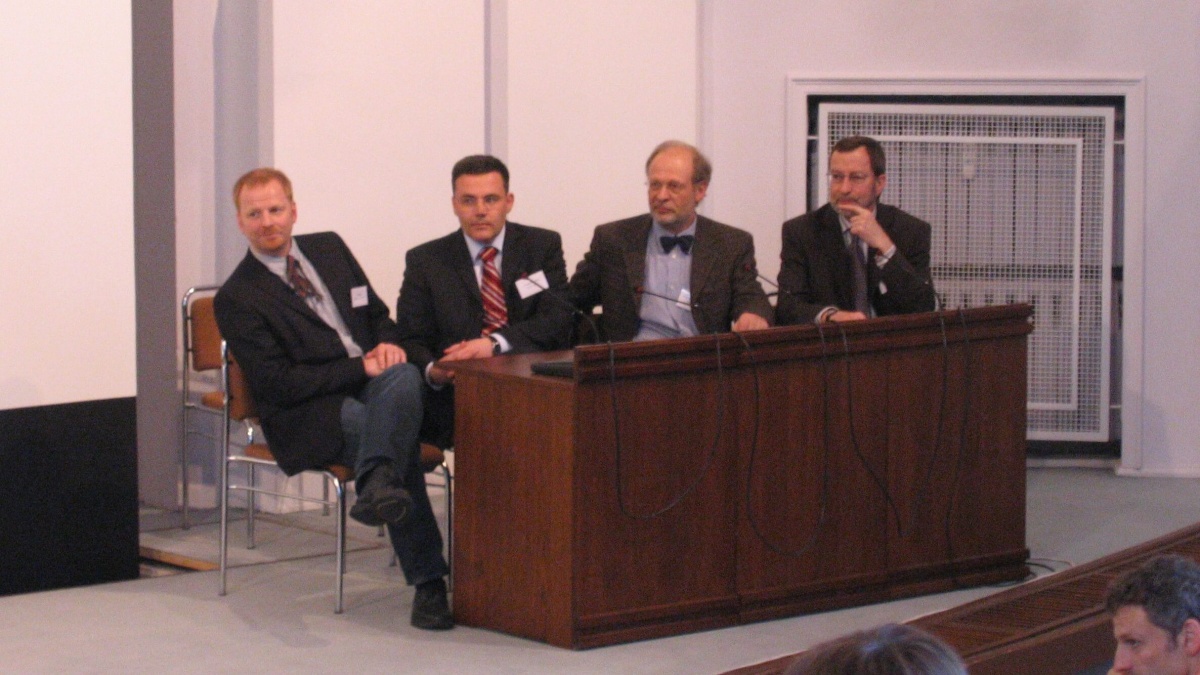
The experts from TMF's BMB project were available to answer questions from the audience during the closing discussion. © TMF
Especially in networked medical research projects like the National Genome Research Network (NGFN) or the Competence Networks in Medicine, which collaborate with other consortia under the umbrella of the TMF, long-term biomaterial banks are increasingly being established, which should also be available for future research questions. The TMF’s board member, Professor Dr. Michael Krawczak (NGFN), who leads the sub-project 'Legal Framework Conditions,' sees the BMB project as paradigmatic for how the opportunities for cooperative work in the TMF can be utilized.
The BMB project is integrated into the other thematic areas of the TMF and is based on the results of various other projects. One essential basis, for example, is provided by the data protection concepts of the TMF or the checklists for patient consent, which have now been expanded to include specific issues related to biomaterial banks. With the results, the TMF can support medical research consortia in their work. As part of the BMB project, legal opinions, data protection concepts, and model contracts have been created, among other things. In addition, checklists, text templates for patient consent, and checklists for quality assurance in sample management in biobanks have been developed to facilitate the concrete implementation of the results in practice. As in previous TMF projects, the concepts were coordinated with the data protection commissioners of the federal government and the states. This provides a clear and legally sound basis for the operation of biobanks and disease-oriented research on biomaterials. The results will be published in the TMF series of publications later this year.
The participants of the symposium particularly benefited from the concrete, practical advice of the BMB experts from the TMF. The final discussion provided space for numerous questions from the audience. For example, the information that the transfer of ownership of samples is possible and advisable proved to be valuable information.

The speakers at the Biomaterial Banks Symposium, top (from right): PD Dr. Michael Hummel, Dr. Jürgen W. Goebel, Peter Ihle, Prof. Dr. Klaus Pommerening, Dr. Dr. Micheal Kiehntopf; under (f.in.r.): Prof. Dr. Michael Krawczak, Ronald Speer, Dr. Christian Gieger, Dr. Katrin Grüber, project manager in the BMB project (podium). © TMF
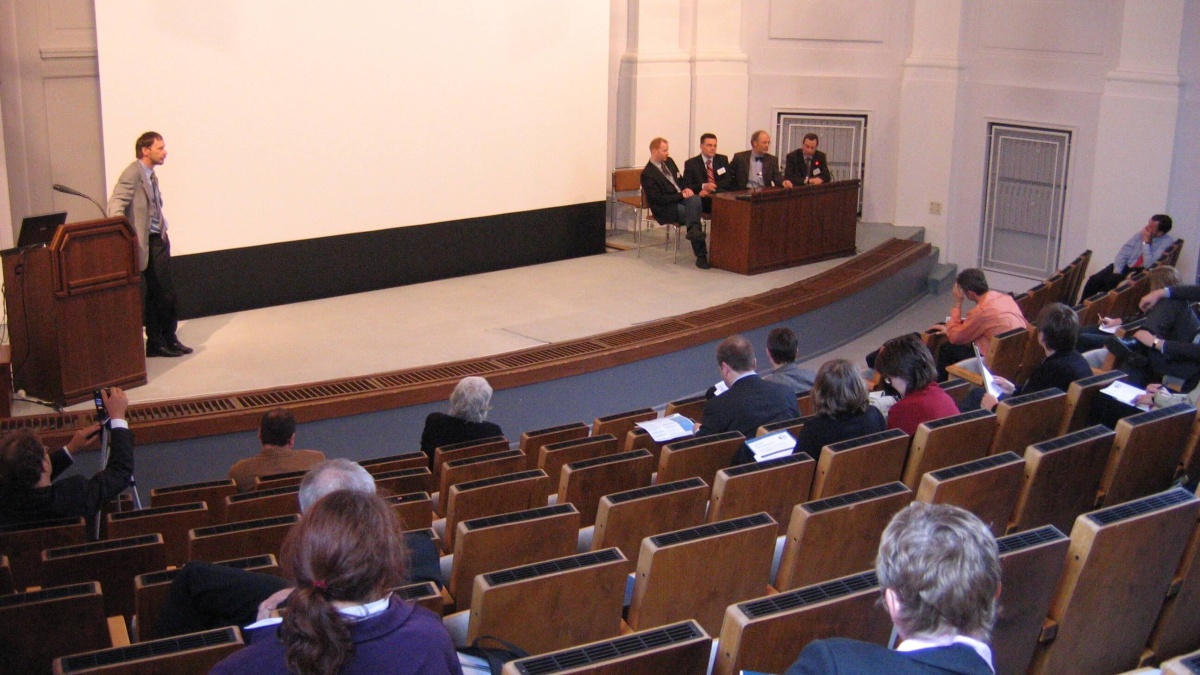
In the final discussion, numerous specific questions from the audience were clarified. © TMF
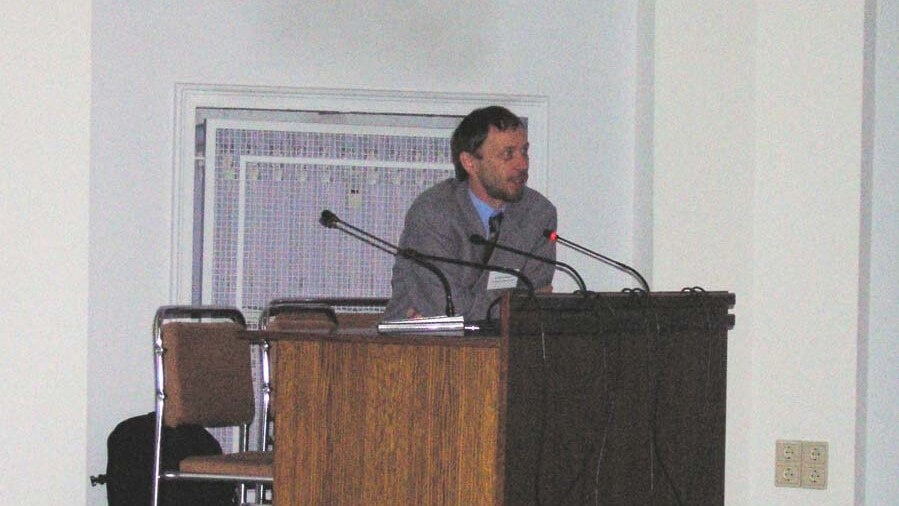
The conference was chaired by PD Dr. Michael Hummel, who is also the overall leader of the BMB project. © TMF
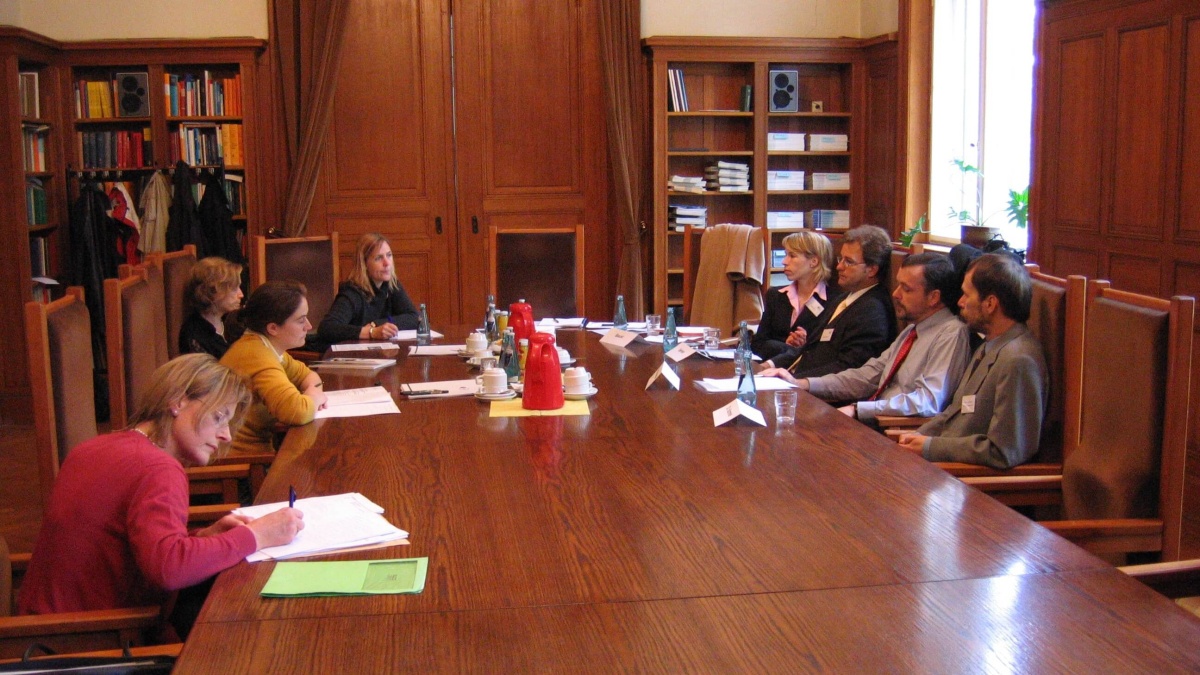
Before the symposium began, Dr. Michael Hummel, Prof. Dr. Michael Krawczak, and Sebastian C. Semler (right from right) explained the background and significance of the TMF biomaterial database project in a press conference. © TMF
Downloads [in German]
| Anhang | Size |
|---|---|
| Program | 823.71 KB |
Presentation Slides
| Anhang | Size |
|---|---|
| 02b Ihle - Personal Rights Versus Research Visions - Patient Consent | 649.92 KB |
| Anhang | Size |
|---|---|
| 05 Speer - IT Requirements for Biobanks | 143.89 KB |
Further Information
